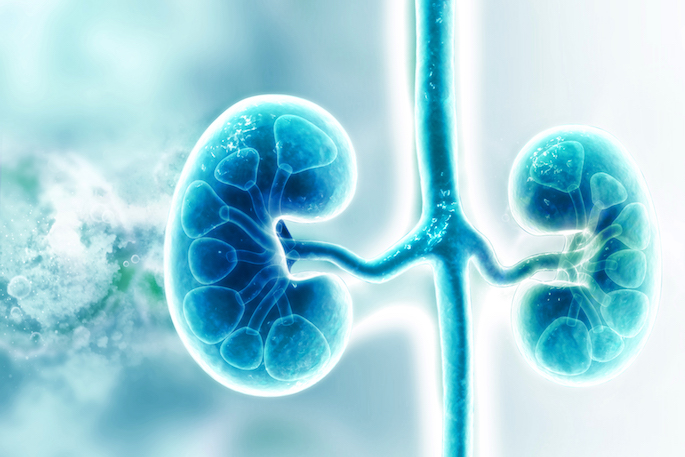Diabetic nephropathy, or kidney disease caused by diabetes, is a major source of morbidity and mortality. In the United States, more than 30 percent of patients receiving either dialytic therapy or renal transplantation have end stage renal disease as a result of diabetic nephropathy.
While some of the risk factors for diabetic nephropathy (DN) are known, such as genetics, blood pressure and blood sugar control, researchers don’t fully understand why some people with diabetes develop kidney damage while others do not.
Vanderbilt has received an NIH-sponsored R24 grant for $1.3 million per year for five years that will bring together experts across the Medical Center who want to learn more about the underlying pathogenic mechanisms behind the development and progression of human DN.
An R24 grant allows for a unique, collaborative effort among investigators in different areas of expertise, in this case those with experience in clinical and experimental studies of DN, tissue analysis and procurement, mass spectrometry, biochemistry and medical bioinformatics.
The team will employ BioVu, Vanderbilt’s “bank” of de-identified DNA samples, and create a human kidney tissue biorepository linked to a de-identified electronic medical record. The use of MALDI Imaging Mass Spectrometry will allow the team to study the biochemical changes to the kidney in response to diabetes and will investigate the underlying mechanisms responsible for these changes.
“By exploring molecular mechanisms underlying the identified changes in proteins, lipids and metabolites occurring in the course of human diabetic nephropathy, our overall goal for these studies is to define the molecular basis for human diabetic nephropathy and to identify potential targets for therapy by utilizing new and powerful modalities,” said program director Raymond Harris, M.D., Ann and Roscoe R. Robinson Professor of Medicine and chief of the Division of Nephrology.
Agnes Fogo, M.D., said the study allows for a unique opportunity to obtain kidney tissue outside of a biopsy and study associated patient information over a long period of time.
The human kidney samples, not needed for diagnostic purposes, will be taken from a cohort of patients pre-consented for DNA analysis.
“What’s unique about this is we’re not getting diagnostic samples from people who have diabetes and wondering if it is diabetic nephropathy. We’re looking at patients where there is kidney tissue available for other reasons, from patients who died from other causes, from autopsy and from patients whose kidneys were diseased from something else, and the tissue not needed for diagnosis can be used for research,” said Fogo, John L. Shapiro Professor of Pathology.
“That remaining tissue has a wealth of information. We will be able to determine the clues and the hints and the abnormalities going on at that time and which of those will allow us to understand diabetic nephropathy in a meaningful way.”
The co-principal investigators for this study include Harris, Fogo, Richard Caprioli, Ph.D., Billy Hudson, Ph.D., and Joshua Denny, M.D., in collaboration with other colleagues.














